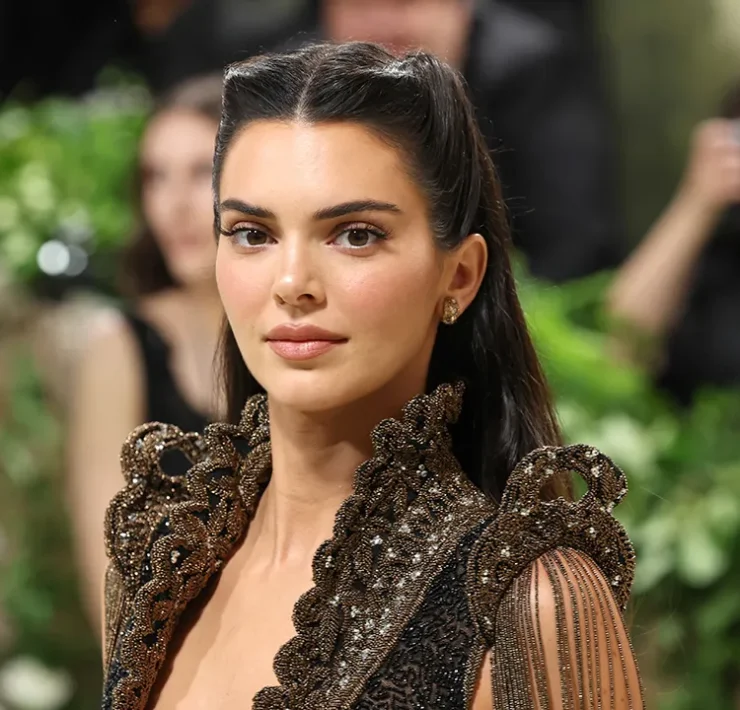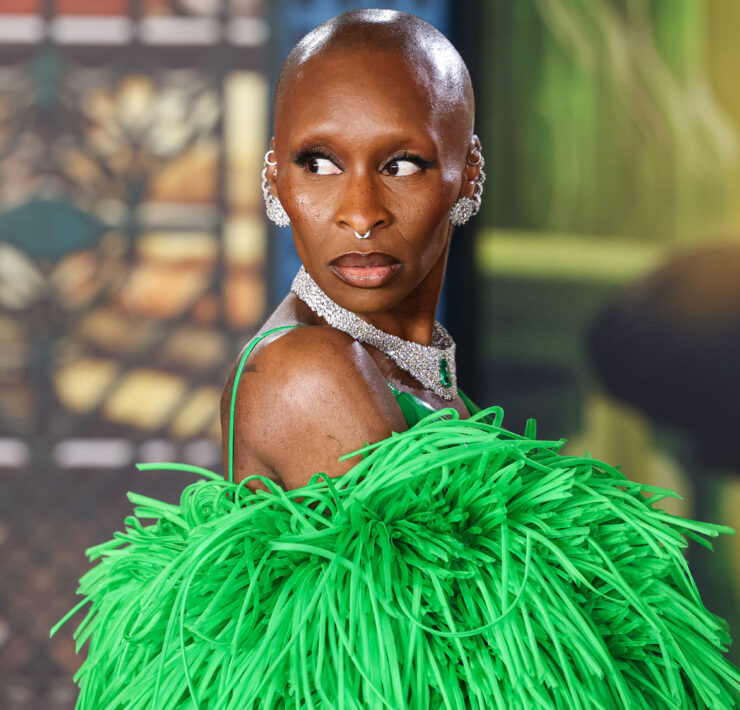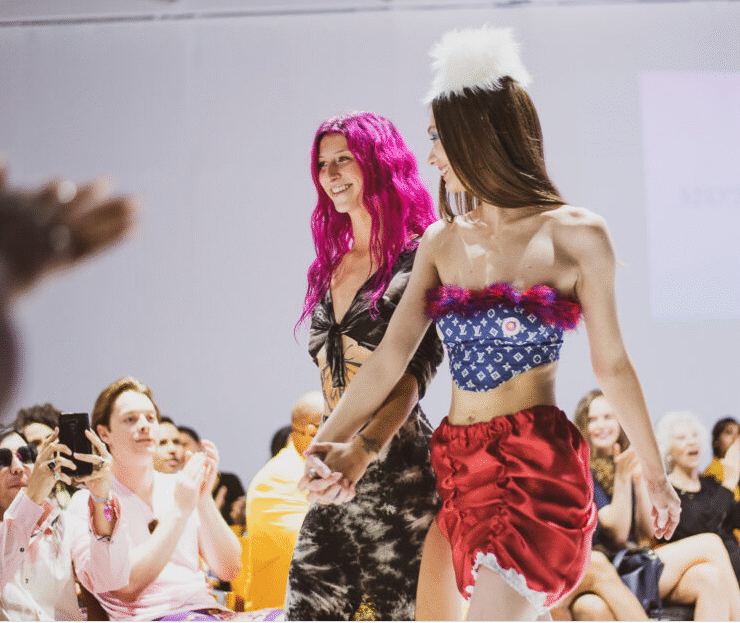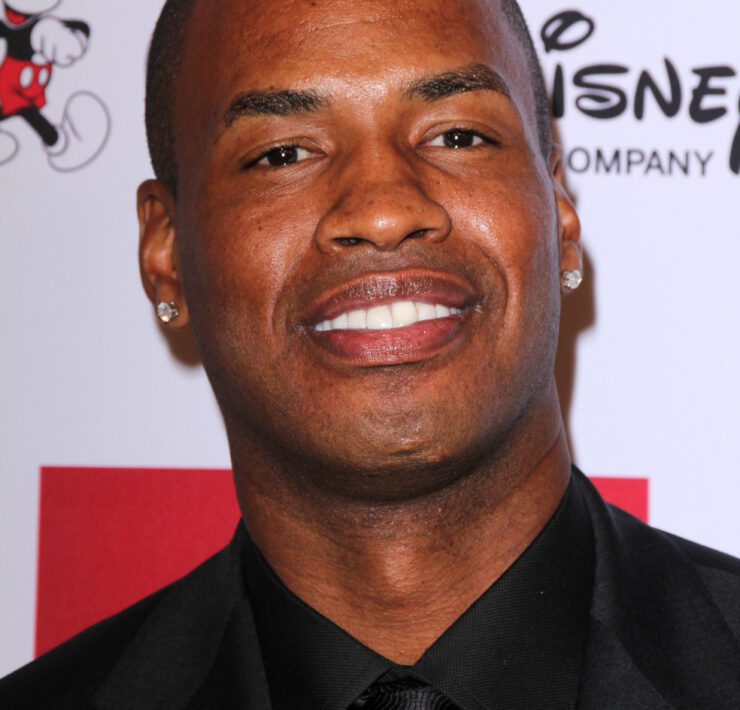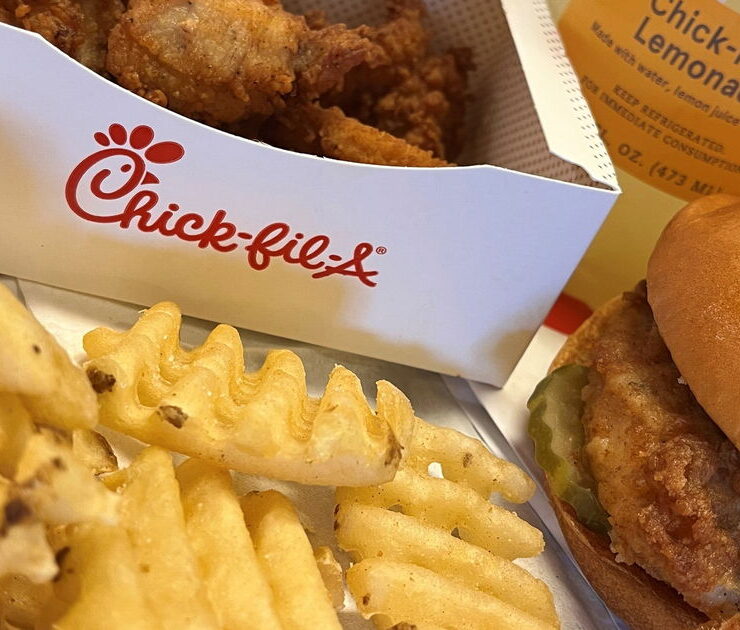Hollywood’s Trans Influencer: Scott Turner Schofield

Denny Patterson is a St. Louis-based entertainment and lifestyle journalist…
The lives of transgender people have never been more visible and present in the entertainment industry, and we have people like Scott Turner Schofield to thank.
An acclaimed educator on transgender issues, Schofield facilitates workshops and presentations with extraordinary skill and compassion. In 2002, he founded training and consulting company called Speaking of Transgender where he has conducted hundreds of gender diversity and inclusion trainings in Hollywood to ensure that transgender stories are being authentically told. Schofield currently consults for HBO’s hit series Euphoria, and he will be working on the upcoming reboot of the feature film, The Craft.
Additionally, Schofield is also an award-winning actor, writer and producer. He has toured internationally with his successful one-man show Becoming a Man in 127 EASY Steps, and made television history by being the first trans actor to appear on Daytime TV in CBS’s The Bold and the Beautiful. He made history once again this year by being the first trans man to be nominated for an Emmy in acting for his work in Amazon’s Studio City.
OUT FRONT had the opportunity to chat more with Schofield about his work and breaking down barriers for trans entertainers.  Hi, Scott! I would like to begin by congratulating you on your Emmy nomination for Studio City. Although you did not win, this is very significant because you are the first trans man to receive an Emmy nomination for acting. How does that feel?
Hi, Scott! I would like to begin by congratulating you on your Emmy nomination for Studio City. Although you did not win, this is very significant because you are the first trans man to receive an Emmy nomination for acting. How does that feel?
In some ways it’s surprising because it’s 2020. How has this not happened yet? In other ways, it’s exciting because I am a member of a community of trans men who are actors and who are excellent. So, if this shines a little bit of light on all of us who are doing great work, then all the better. It’s showing that Hollywood is listening. Hollywood is casting trans actors and giving us the visibility we have been asking for. They are listening and seeing us for the first time, and we can’t lose sight of that.
And this isn’t your first time breaking down walls for trans entertainers. In 2015, you were cast in The Bold and the Beautiful which made you the first openly trans actor to appear on daytime television. Can you recall what was going through your mind when that happened?
I have always been openly trans as an actor, and that has for a long time held me back. I had to do solo work because I couldn’t get cast as a transgender actor in shows, plays or anything. So, there’s always this element of this is really good for the community. This shows progress. Any visibility for trans people is good. I had to grow up never seeing another person like myself, and that was harmful to me psychologically. It is for all trans people. So, even when that happened, I thought, oh my goodness. This is going to be so great. This is going to be so good for so many people. Also thinking about The Bold and the Beautiful audience, you know, a primetime audience sort of expects a trans character, but to have an audience where it’s really their first time engaging this and to be able to be that representative, especially with the work that I do as an activist, I knew that it was going to be a good moment. That really matters to me.
What barrier do you hope to break next?
[Laughs] How about being nominated for an Oscar?
Do you think Hollywood is still dragging its feet when it comes to casting trans performers?
My background and sort of day job is working as a trans consultant in Hollywood. Like, I worked on Euphoria, and I do everything from reading the scripts and making sure that they are not unwittingly doing tropes that are harmful. I go on set and I train the crew and everybody who works there so that we create a safe environment for a trans actor to really be able to shine, bring their whole selves and not have to worry about someone saying or doing something that will harm them. I have never been busier right now with that work, so I don’t believe that Hollywood is dragging its feet. There are still people who are not doing the work of educating themselves. They think that they know, but they are still causing harm. Most people don’t even know what a transgender trope is, so they can’t see it to stop it. That is why you need to hire a transgender consultant who is somebody that understands media and storytelling, not just any trans person. Someone who knows how to help and do storytelling right. There’s so much work in that area right now. There’s the humility of thinking that we know everything, and that’s just a human thing, but by and large, I am seeing people in Hollywood being responsible, listening and consulting.
Related article: CW’s Supergirl Breaks Ground with First Trans Superhero
I am glad you brought up consulting for Euphoria. Can you tell us more about your consulting company, Speaking of Transgender?
I have been a transgender educator and consultant in many areas of many different industries since 2002. I have been doing this professionally for a long time. I started working in higher education, and I helped change the non-discrimination policies of major universities by helping them separate sexual orientation and gender identity as separate protections, because they are different. Then I moved into working in corporations. I have worked for some of the biggest companies on the planet educating people who work there so they can, like I do on set, create an environment where a trans person can come to work and just do their job and not have to worry about going to the bathroom. So, that was my day job because I really only wanted to be an actor, and as most actors do, you have a day job on the side. Because of transgender employment discrimination, I wasn’t ever able to really get a job, so I had to create my own both on and offstage. I am a good educator and I have been able to explain this to people in ways that they can hear without getting defensive, and it’s been very effective. So, when I got the Bold and the Beautiful job, I started working with GLAAD. They media trained me, and Nick Adams who was the director of transgender representation at GLAAD said I’m really good at this. I said I know; I’ve been doing this for a while [laughs]. He asked how would I like to start doing it in the entertainment industry, and that’s the perfect match for me. I still do some corporate work, but more than anything, I want to focus on Hollywood because that’s the biggest megaphone in how to teach people how to treat us.
 In 2018, you were very vocal when Scarlett Johansson received backlash for attempting to play a trans character. Do you believe only trans actors should play trans roles?
In 2018, you were very vocal when Scarlett Johansson received backlash for attempting to play a trans character. Do you believe only trans actors should play trans roles?
That video that we made really showed you exactly what the issue is. If I were trying to go for Scarlett Johansson roles, everyone would think that was ridiculous. So, why isn’t it the same the other way around? I want you to really hear this because the way that this topic has been represented has been false. What’s really going on with transgender actors playing transgender roles is, we wanted transgender actors to even be seen for roles, period. To start by playing ourselves seemed like the most obvious choice. If you think about it, Eddie Redmayne, Jared Leto, all of these people are getting all this acclaim for playing transgender characters. We weren’t even being let into the room to audition for these roles. That’s really the truth of it. So, we are starting to create an equal playing field, and you’re seeing all of us. You are starting to see that trans people can act. People used to say well, we don’t know anybody. We can’t find anybody. But you weren’t looking. They’ll say you don’t have credits. How can you have credits if no one was looking for you? So, it’s an employment equity situation, and once we have established a fair and equal playing field where transgender actors are being hired, then we can talk about who can play what role.
It has been 20 years since you came out. When did you first realize that you were different and what was the deciding factor that made you come out?
I knew that I was a boy when I was a very small child. Like, 2-3 years old, and psychologists are starting to understand that. Gender identity is like hardware. When you get a computer and it already has the programs on it, gender identity and sexual orientation are both right there, but what happens is the world comes in. I grew up in a culture where I didn’t even hear the word lesbian until Ellen DeGeneres came out. Never mind transgender, and I had even met transgender women when I was going to a LGBTQ support group for young people. I met transgender women, but I never saw transgender men anywhere. I didn’t know that was possible. So, I met a trans man 20 years ago, and that was like a huge lightbulb moment for me to go oh, people like me do exist. He gave me Transgender Warriors which is an amazing history book that shows transgender people, real historical evidence of transgender people all throughout time. It was just this amazing moment.
I was very, very, very young when I came out as trans, and at the same time, I started off a whole different developmental process. Like, when you start living your life, asking the people around you to change your pronouns, changing your name. You are dealing with people dealing with you in a way that is completely different than how people deal with you if they think that they’re just responding to you in the gender that they expect. Caitlyn Jenner came out five years ago, and she’s always known she was trans too. She knew she was trans when she was on the cover of the Wheaties box in the 70s, but she wasn’t out. So, I have four times more experience being trans than Caitlyn does in that, and that does mean something because over time, you see the things that fundamentally change right when you transition and the things that don’t. There is just so much to say about that and I really appreciate you asking me because most time, we only focus on people who are just starting their transition.
What advice would you give to someone who is afraid to come out because they fear of losing their family or career?
I am someone who’s lived that, so I can speak to that. I couldn’t get into graduate school even though I graduated from a top university, had a Pulitzer Prize winner writing my graduate school recommendations and was in Phi Beta Kappa’s highest honors. Like, I was a catch, but I couldn’t get into any graduate schools. I applied over five different times over five different years for something I was eminently qualified to do, and it was clear that the people were saying, we don’t know what to do with that. I have certainly been turned down for jobs because of it, and I have lost members of my family who refused to accept or support who I am. So, what I have to day to folks is, you do have to be ready. Financially ready and emotionally ready to lose some of the most important parts of your life. At the same time, anyone who’s hearing that also knows that it’s not a choice. If the only other choice is killing yourself, it’s not a choice. As someone who has lived all of that very deep hardship, I can say, I am still grateful to be alive and to be living my truth. I am glad that I didn’t ever, you know.
You are considered a professional transgender advocate. How does that compare to other trans advocate, and do you ever get tired of being called that?
I love having a purposeful, helpful calling for a day job. It only annoys me when people think I can’t be both an advocate and an artist. Only one percent of artists don’t have a day job, so why should mine define me more than anyone else’s? It uses a lot of the same skills. I am pitching trans inclusion, auditioning for a place inside people’s hearts and minds and using my storytelling skills to engage people’s empathy. That’s Hollywood as much as it is diversity and inclusion.
What is the biggest misconception about transgender identity?
The biggest and the most harmful is that it’s not real. People will look for any reason to give you as to why it can’t be. It’s your chromosomes, you were harmed, you were sexually abused as a child, you’re just playing make believe, you’re just trying to get attention. After 20 years of doing this, I have heard them all. I have heard every single reason. What’s real in life, in every aspect of life, the only constant is diversity. There is something bigger and more mysterious in everything, everywhere. We may not know why people are transgender, we just know that they are. Fighting that, it doesn’t mean anything about being transgender, it’s mean that you are not willing to look at reality, and that’s your problem.
 How can we increase trans visibility and normalize trans folks in the queer community?
How can we increase trans visibility and normalize trans folks in the queer community?
Being trans is just like being gay, bisexual or queer. Trans people are black people, trans people are disabled people, trans people are all people. Right now, we have to center on people of color and we have to listen to people of color. One thing that I am really thinking about right now is how, just like from your last question, when people would deny my very existence and deny the things that I felt and experienced in life, I feel a deep empathy towards black people who have been experiencing racism for hundreds of years now. They have been saying that this is racist, but no one would believe them. So, we have to just put down all of our opinions and listen right now. If you do that for black people because it’s what’s needed right now, then you have the capability to do that for a trans person. I think we just really need to listen and accept one another right now. That’s what will heal this.
I would like to ask about one of your biggest and most successful projects, Becoming a Man in 127 EASY Steps. Can you tell us more about it, and how can we help support or follow it?
Oh, thank you so much. Becoming a Man in 127 Easy Steps was my third one man show. Like I said, for many years, I couldn’t get jobs acting with other people, so I had to do my own. I was not going to be stopped, and this was very successful. It got a lot of support from the National Performance Network and from the Princess Grace Foundation, and this is back in 2007. So, if you think about everything we don’t know about trans men right now, think about everything we didn’t know back then. It got really deep and high-level support. The idea of the show was, as I told you, when you’re starting out being trans, there’s one set of issues, but once you have lived that way for a long time, it’s a whole other story. So, I wanted to tell a whole story. One hundred and twenty-seven different stories, in fact. It starts with my birth, I believe I was born trans, and I believe that was a special blessing. The last step, 127, is wondering what happens when you die. So, I wonder what will happen to me when I die. I want to tell the whole story of my childhood, believing myself, my transition and everything that’s happened afterwards. The audience would call out numbers between 1-127, and they’d get like 6-8 stories in a night.
Andrea James, who is an amazing trans consultant and activist here in Hollywood, she came up to me in 2015 at Outfest, and she said, I know your story and I would really like to see if we could make it into a film. I said okay, sure! We filmed a whole slew of these stories. There are ones that are written, ones that are in podcast form, every story is told in its most authentic voice. A piece of it premiered at Tribeca this year, which was amazing, and we are currently figuring out what platform is going to hold all of these stories and be able to put it out there. Folks can support us by following us on social media, supporting our Patreon and donating to our independent filmmaker project. We’re still working on it, but you know, supporting trans voices to tell trans stories is really effective activism, and we appreciate it.
Related article: Voting While Trans and Nonbinary
Before we wrap up, is there anything else you would like to add? Any other upcoming projects we should be on the lookout for?
I do! I just narrated my first audio book. It’s a wonderful book. I didn’t write it, but it’s by a trans man named Alex Myers, and the novel is called Continental Divide. It is a really deep and very accessible story about a young man who goes out to Wyoming and lives before transitioning and fully accepting himself as a man. It’s a nuance story that was actually written about 1992, that’s actually when it takes place, it is so current. It is so true and beautifully written; it’s really well done. So, read or listen to me.
To stay up to date with Schofield, visit scotttschofield.com, or follow him on social media.
Photos Courtesy of Olivia Hemaratanatorn
What's Your Reaction?
Denny Patterson is a St. Louis-based entertainment and lifestyle journalist who serves as OFM's Celebrity Correspondent. Outside of writing, some of his interests include traveling, binge watching TV shows and movies, reading (books and people!), and spending time with his husband and pets. Denny is also the Senior Lifestyle Writer for South Florida's OutClique Magazine and a contributing writer for Instinct Magazine. Connect with him on Instagram: @dennyp777.



